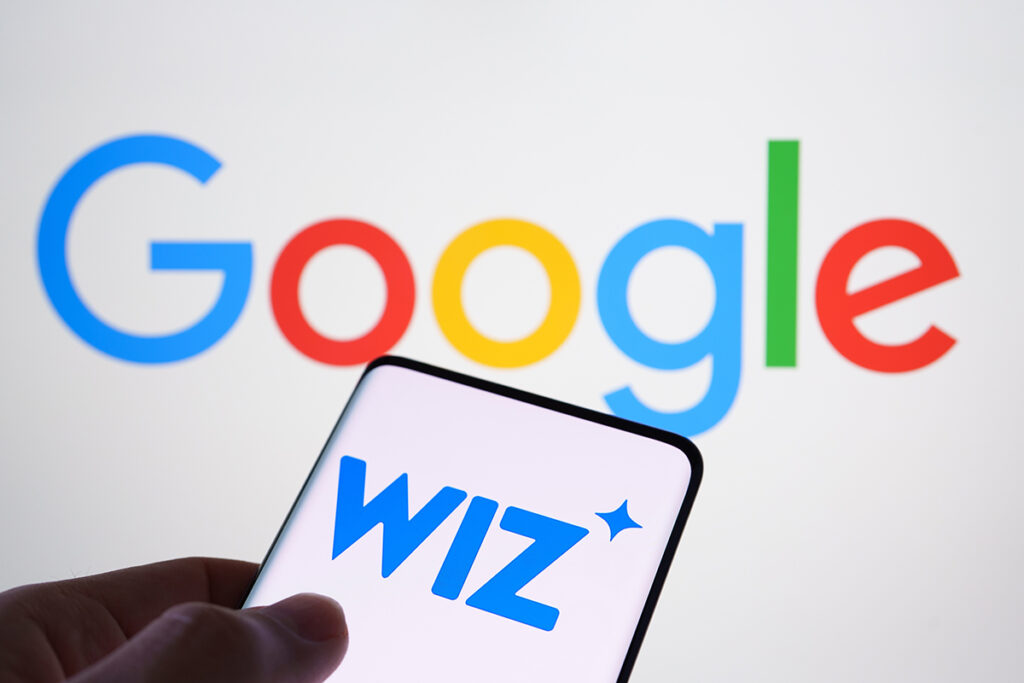Google has unveiled its largest-ever acquisition, announcing an agreement to purchase the rapidly expanding cybersecurity firm Wiz for a substantial $32 billion in cash. This groundbreaking move underscores Google’s strategic shift toward prioritizing cloud security and cybersecurity, sectors experiencing unprecedented growth driven by advancements in artificial intelligence.
The acquisition surpasses Google’s previous record deal from 2012, when the company bought Motorola Mobility for $12.5 billion—a transaction that ultimately resulted in significant losses when Google later divested the business. The scale of this latest acquisition emphasizes the tech giant’s heightened confidence in Wiz’s potential within the booming cybersecurity landscape.
Founded just five years ago, Wiz quickly emerged as a major player in cybersecurity software, particularly specializing in solutions tailored for cloud computing platforms. Its rapid ascent is attributed to the expertise of its four co-founders—Assaf Rappaport, Ami Luttwak, Yinon Costica, and Roy Reznik—who initially connected during their service in Unit 8200, Israel’s elite cyber intelligence division.
Prior to this announcement, Wiz had engaged in acquisition discussions with Google in the summer, valuing the deal at approximately $23 billion. However, when negotiations stalled, Wiz pivoted its strategy toward an initial public offering (IPO). This subsequent $32 billion agreement reflects the enhanced valuation and growing market confidence in the cybersecurity firm’s capabilities and future prospects.
Historically, this deal ranks as the seventh-largest acquisition of a privately held U.S. company ever recorded, according to data from Dealogic. Analysts and investors see Google’s move as potentially signaling the beginning of a broader revival in mergers and acquisitions (M&A) activity, following a prolonged downturn due to financial market instability and cautious CEO sentiments.
Notably, Google’s decision to proceed with this major transaction coincides with a notable regulatory shift in the U.S. The recent departure of Federal Trade Commission (FTC) Chair Lina Khan, who had adopted a stringent stance against mega-mergers and blocked numerous major deals, is perceived as a significant change in the regulatory environment. Analysts anticipate that her exit may encourage a renewed appetite for significant mergers and acquisitions among tech giants.
Khan’s rigorous antitrust enforcement was previously praised by some Republicans, including Vice President JD Vance, highlighting bipartisan support for cautious scrutiny of Big Tech consolidations. However, market analysts now expect a fresh wave of dealmaking, forecasting greater momentum as tech companies feel increasingly confident navigating the new regulatory landscape.
Google’s bold investment in Wiz clearly indicates that cybersecurity, particularly cloud-focused security technologies, will continue playing a critical role in shaping tech industry strategies moving forward.


